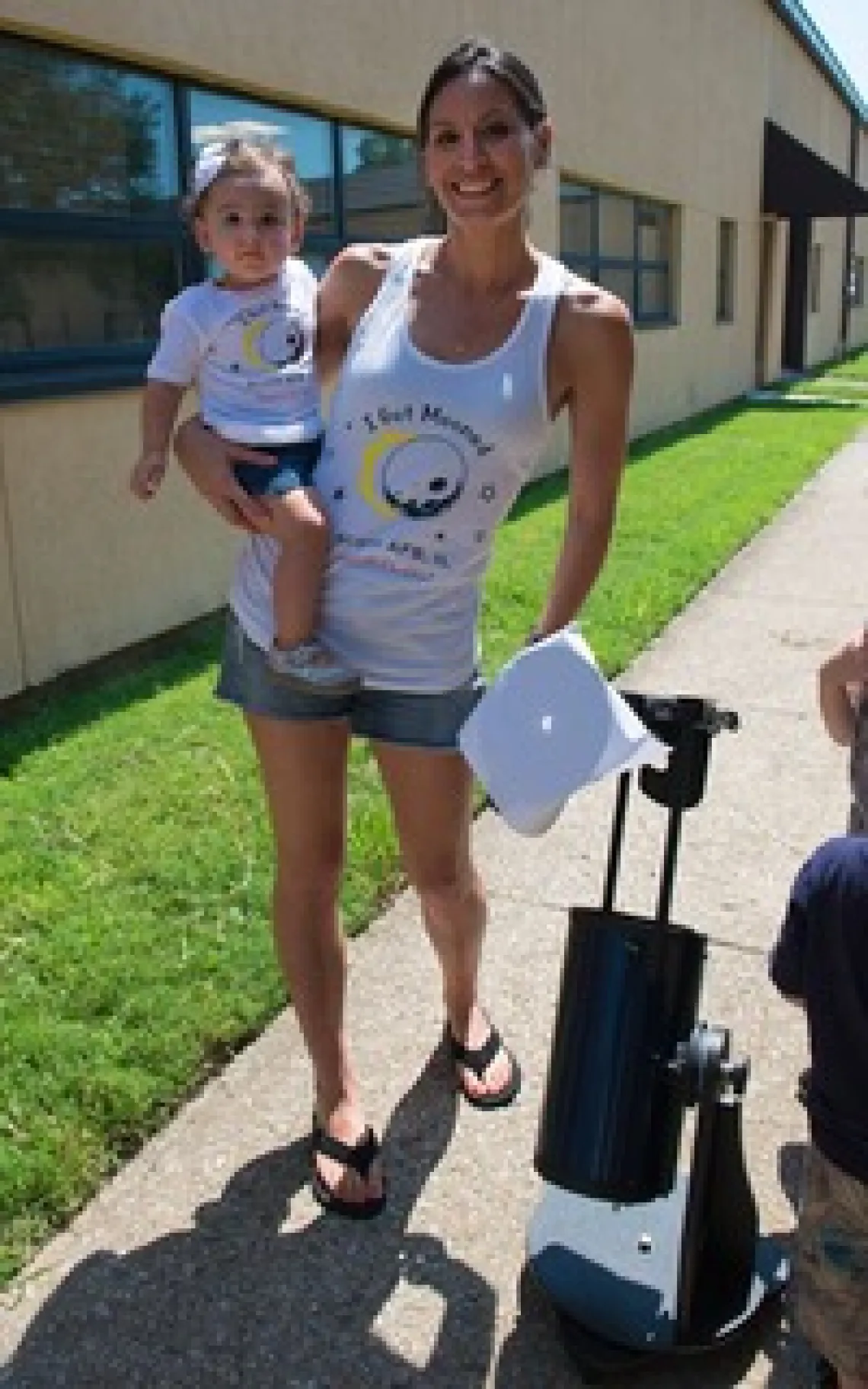Dr. Lisa Felix-Strishock -- Science Education and Environmental Learning

By Elizabeth Labiner
Lisa Felix-Strishock kept coming back for more at the U of A. After graduating with her BA in 2004, she then earned an MA in Teaching and Teacher Education, with a special focus on environmental learning, in 2007. In 2018, she completed her PhD in Science Education and Environmental Learning, part of the program in Teaching, Learning and Sociocultural Studies.
Felix-Strishock now works as a curriculum developer for CosmoQuest -- a non-profit funded by NASA, and linked to the Astronomical Society of the Pacific -- creating lessons and activities for teachers to use in order to get their students involved in space science and citizen science projects. She got her start at CosmoQuest in part thanks to maintaining strong interpersonal connections at UA, she says:
My dissertation is quantitative, so I had to learn how to manage a large database and run high level statistical analyses on it. One of my mentors and committee members is also a friend I made while I was working on my MA and she was doing her PhD. CosmoQuest is one of the research projects she helps run, and they were looking for someone who could write curriculum, design and implement professional development, and help in conducting research. I got extremely lucky - my husband is military and we were about to move to our new duty station just outside of St. Louis, and CosmoQuest just happened to be run through an office about 30 minutes away from there.
UA’s prowess in astronomy helped as well, she notes, “Also, the UA is so respected in education and astronomy, that just being able to say that I went to that school helped me get in with people.” Felix-Strishock also says that her programs set her up for success in multitasking and working in a non-traditional environment. She explains,
At the UA, we were always expected to do our school work, teach, and complete outside research projects simultaneously, many times while working with other people. And not all of these people were always physically present, so we had to get used to lots of online meetings. So now, working with others on projects in an online environment, multitasking between research and curriculum, and being able to do it all from home (working from home definitely isn’t the easiest thing to do - it’s so easy to get distracted and waste time!) is kind of second nature to me. Plus, my graduate program did an amazing job of encouraging us to pursue lots of different opportunities. So beyond regular school work and doing my own research for my thesis and dissertations, I was able to teach in non-formal learning environments, run a major database, teach preservice teachers, develop programs and curriculum for non-formal and formal schooling, develop and implement professional development, present at research conferences around the world (so far my work has been presented in Cyprus, Germany, Czech Republic, the US, and will be presented in Spain this year as well). So my advisor really gave me a ton of support, guidance, and definitely pushed me to experience the field in so many different ways.
Though she didn’t initially expect to be working on space-focused science education, Felix-Strishock is delighted to be doing so. She does hope, though, to be able to go back to her roots in environmental education, perhaps developing a more earth-centric curriculum in addition to her astronomy lessons.
Felix-Strishock is particularly glad to have found a job that works for her sometimes-unpredictable life as a military spouse. “A lot of military spouses end up leaving their careers because we move so much, and it’s hard to find a place that will hire someone when they know that person is just going to up and leave soon,” she says, pointing out as well that when such opportunities do exist, the competition for them is extremely fierce. Her career at CosmoQuest allows her to both continue doing what she loves and do it in a flexible workspace environment. “I honestly couldn’t have found a better fit for our life,” she enthuses, “I really don’t believe I would have gotten this opportunity if I didn’t have the experiences I do from the UA.”

